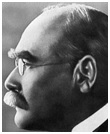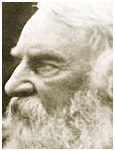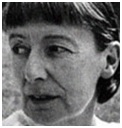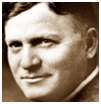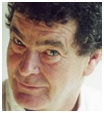|
 |
|
 |
|
|
||
Poetry - Influencing people
Rudyard Kipling (1865-1936), If -
(1895) Kipling (pictured right) in Britain's most popular poem gives these tips for influencing people and success:
1. Keep your feet on the ground “keep your head” (line 1).
If you can meet with Triumph and Disaster And treat those two impostors just the same. (lines 11-12)
2. Have faith in yourself “Trust yourself” (line 3)
3. Be patient “ Wait and not be tired by waiting” (line 5)
4. Be honest with yourself and others “Don’t deal in lies” (line 6). “If you can bear to hear the truth you’ve
spoken” (line 13)
5. Love others “Don’t give way to hating” (line 7)
6. Dream and think to good purpose If you can dream—and not make dreams your master; If you can think—and not make thoughts your aim; (lines 9-10)
7. Keep the will to win And so hold on when there is nothing in you Except the Will which says to them: ‘Hold on!’ (lines 23-24)
8. Act with humility and integrity If you can talk with crowds and keep your virtue, Or walk with Kings---nor lose the common touch. (lines 25 and 26)
9. Use your time well If you can fill the unforgiving minute With sixty seconds’ worth of distance run. (lines 29-30)
Henry Wadsworth
Longfellow (1807-82), A Psalm of Life (1839) Great people leave a lasting legacy, says the American poet (pictured right):
Lives of great men all remind us We can make our lives sublime, And, departing, leave behind us Footprints on the sands of time (7th verse)
Stephen Spender (1909-95),The Truly Great
(1931) The English poet (pictured right) describes great people as passionate fighters for morality and progress:
The names of those who in their lives fought for life Who wore at their hearts the fire's centre. Born of the sun they travelled a short while towards the sun, And left the vivid air signed with their honour. (last four lines)
Stevie Smith (1902-71), Not Waving But Drowning (1957) The English poet (pictured right) describes a man who dies in the sea, because people think he is waving not drowning. First impressions can be highly misleading, particularly if people are indifferent to the person concerned: Nobody heard him, the dead man, But still he lay moaning: I was much further out than you thought And not waving but drowning. (first verse)
Alfred, Lord Tennyson (1809-92),
Somebody The English poet (pictured right) says your influence will increase, if you’re already socially recognized (i.e. a somebody)
Somebody, being a nobody, Thinking to look like a somebody, Said that he thought me a nobody: Good little somebody-nobody, Had you not known me a somebody, Would you have called me nobody? (complete poem)
Max Ehrmann (1872-1945), Desiderata
(1927) The American poet (pictured right) emphasizes peaceful co-operation with others:
Go placidly amid the noise and haste, and remember what peace there may be in silence. As far as possible without surrender be on good terms with all persons. Speak your truth quietly and clearly; and listen to others. (first three lines)
Brian Patten (1946- ), So Many Different Lengths of Time
(2007) The English poet (pictured right) says influence comes from inspiration:
A man lives for as long as we carry him inside us, for as long as we carry the harvest of his dreams, for as long as we ourselves live, holding memories in common, a man lives. (Fourth verse) |
|
|
||
|
|
||
| Copyright © wisdomtowin.com 2025 All Rights Reserved | ||
|


